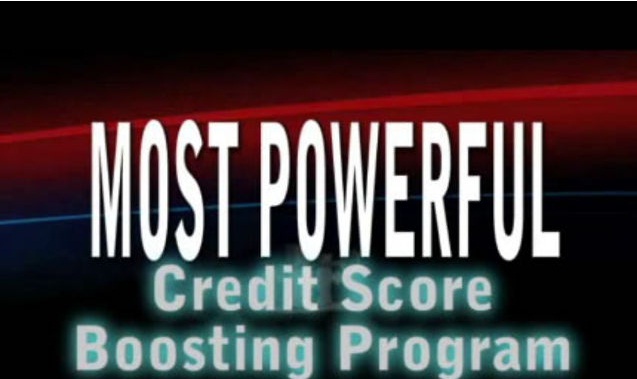Markets & Finance
How To Easily Boost Your Credit

A friend of mine just bought a brand new car. There’s really nothing special about buying a new car, but there is something very interesting about this very case, that drew my attention.
The guy I’m talking about is a modest film making student. He works part-time at my favorite local coffee-shop, doesn’t have rich parents and generally is a simple person, except of being a sharp and responsible kid.
Anyway I was very surprised when I saw his new truck at the parking lot and found out the interest rate of his car loan. It was like if he had almost perfect credit score. He didn’t tell the secret how he managed to do that, but this made me wonder about how a person can boost his/her credit score.
It appears that improving one’s credit history is not a rocket science. Although it requires some knowledge, the main challenges for most of the folks are personal responsibility, consistency and being proactive. So, if you need to make your credit score higher, read carefully and act.

First of all, be informed about every detail of your credit history and check for possible errors which can negatively affect your score.
There are two main credit reporting agencies – Equifax and TransUnion. They gather all information regarding your financial activities to analyze your ability to pay off a loan. But it’s been discovered, that over 70% of credit histories contain errors. A utility bill or car loan you paid on time actually may be indicated as a late payment. As a result, these errors sink your credit score. To fix the situation, send to the reporting agency a copy of the documents which prove that you have no late payments. By the federal law they have to correct the errors.
Speaking about on time payments – it’s proven fact that if you pay them on time without even tiniest delay, in six months it will result in your credit score improvement. So another important lesson – pay your bills on time. If you are very busy, set an automated bill payment with your bank so you wouldn’t miss any due dates. Other words, be responsible paying your bills and in six months you will see the results.
One of the most effective tools that will boost your credit score is keeping your credit card balance below credit limits. It’s recommended using no more than 30% of your credit limit as your balance. The reporting agency will notice paying what you owe back and at the same time moderation in your purchases. This is the picture of a perfect customer who deserves a higher credit score.
Borrowing from one lender for paying another is a taboo. Remember, this practice will kill your credit score and it may be difficult for you even to get a personal loan from PersonalMoneyService.
Another useful tool will be spreading your debt. It’s preferable to have over the time a number of small credit accounts than one big balance on one account. But remember that establishing new credit history by opening new various credit accounts will not help.
Switching accounts will affect negatively for personal credit history. If you are ready to get rid of extra credit accounts, stay with the older ones. The longer credit history the better.
Note that closing an account does not eliminate bad credit history from it.
Often people damage their personal credit score when doing mortgage shopping without a mortgage broker. In this situation each lendersends a credit history inquiry to the agency. The agency sees the multiple inquiries and interprets this as if a person is trying to get multiple loans at the same time. The consequence is obvious – the credit score goes down.
To avoid this situation, use services of a mortgage broker who will send an inquiry only once. Then having your data, the broker will search for the mortgage that fits you the best, without extra inquiries.
So there is an affirmative answer to the question if it’s possible to boost one’s credit score easily.
Generally speaking, personal responsibility in financial matters is what creditors and credit history agencies like. Using credit cards with moderation and paying back what you borrowed on time is the key to improving credit history. And of course keeping abreast of information of your personal credit history is definitely a plus.
-

 Tech11 years ago
Tech11 years agoCreating An e-Commerce Website
-

 Tech11 years ago
Tech11 years agoDesign Template Guidelines For Mobile Apps
-

 Business6 years ago
Business6 years agoWhat Is AdsSupply? A Comprehensive Review
-

 Business10 years ago
Business10 years agoThe Key Types Of Brochure Printing Services
-

 Tech8 years ago
Tech8 years agoWhen To Send Your Bulk Messages?
-

 Tech5 years ago
Tech5 years ago5 Link Building Strategies You Can Apply For Local SEO
-

 Law5 years ago
Law5 years agoHow Can A Divorce Lawyer Help You Get Through Divorce?
-

 Home Improvement6 years ago
Home Improvement6 years agoHоw tо Kеер Antѕ Out оf Yоur Kitсhеn































